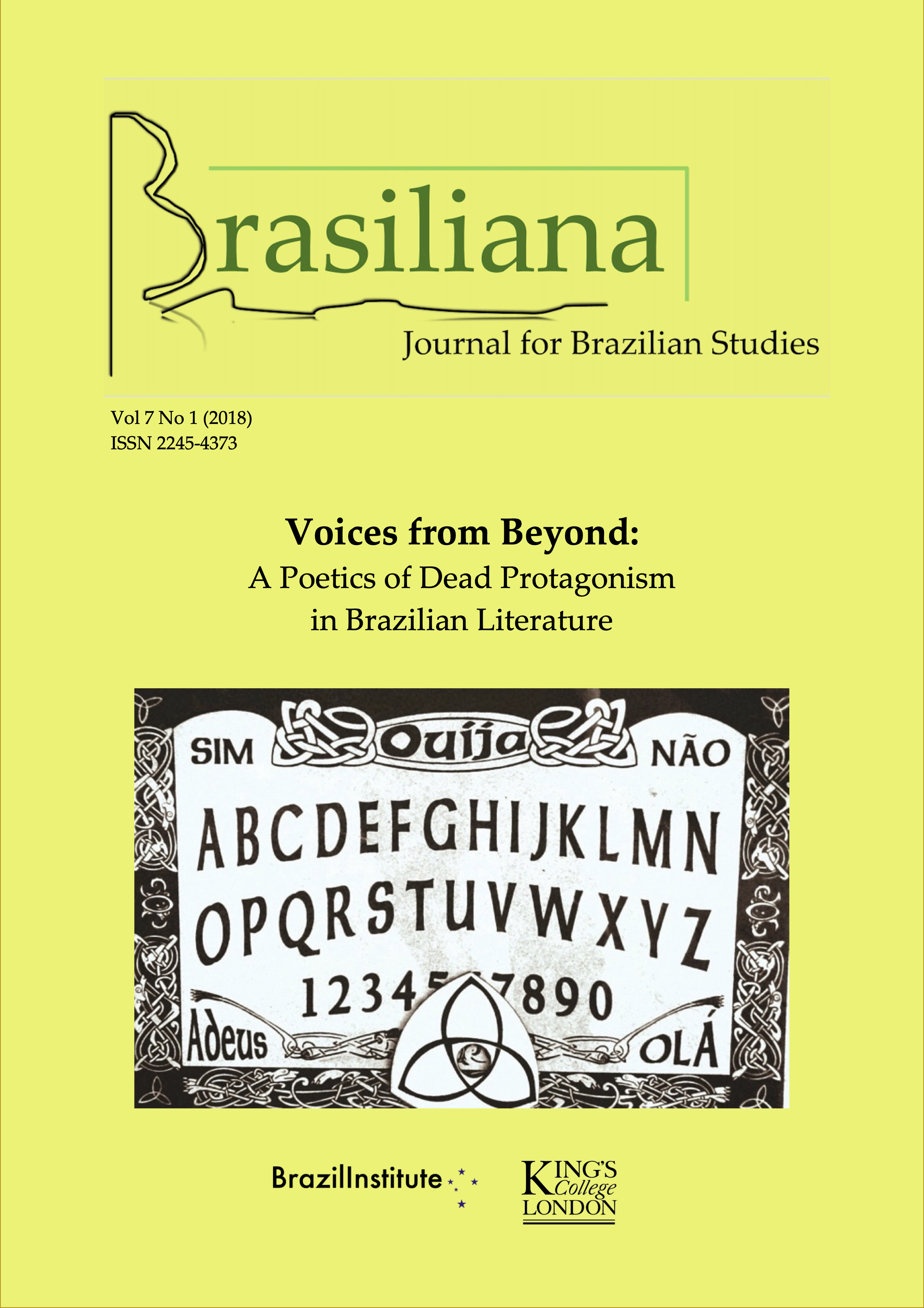Family (Novel), Death, and Polyphony in Lúcio Cardoso, Crônica da Casa Assassinada
Conteúdo do artigo principal
Resumo
Taking its cue from the anthropological conjunction of "house" and "death," the article contextualizes Lúcio Cardoso's novel Crônica da Casa Assassinada (1959) within the literary tradition of the Brazilian "Big House novel" as well as the modern family saga generally, thus highlighting both its culturally specific and its potentially universal dimension. The dinstictive formal character of the novel is analyzed with regard to its emphasis on psychological representation and its polyphonic, kaleidoscopic fragmentation of epic totality. Furthermore, the novel is also linked to the tradition of the (American) Gothic, from which Cardoso adapts the notion of the unstabe boundary between life and death, of haunting as the survival of the past, or of specters as hinges between different temporalities. The recurring tropes of death and decadence are not objectively distanced, but the novel paradoxically affirms the notion of decadence against the normative expectations of both the traditional past and of modernity.
Detalhes do artigo
![]()
Articles published in Brasiliana are licensed under a Creative Commons Attribution-NonCommercial-NoDerivs 3.0 Unported License.
When publishing open access, the author signs an author publishing agreement in which they retain copyright and give Brasiliana the right to publish the article. Our Open Access publications are distributed under the terms of the Creative Commons Attribution 4.0 International License, which permits unrestricted use, distribution, and reproduction in any medium, provided the original work is properly cited.

